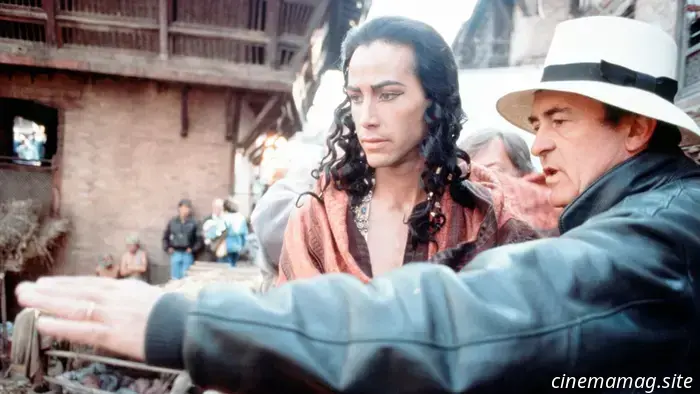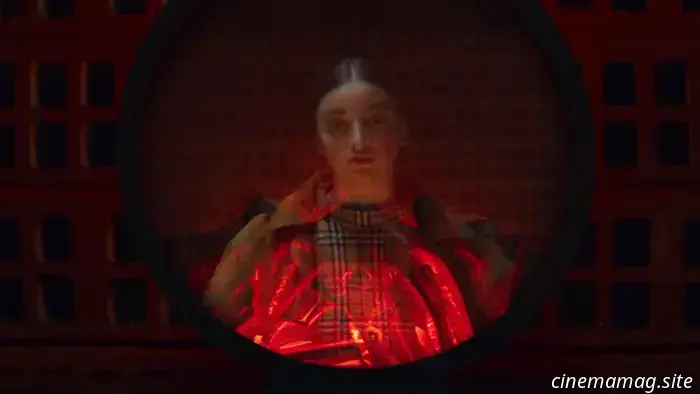
Pietro Scalia on Editing for Bernardo Bertolucci, the Allure of Keanu Reeves, and Working Together with Ryuichi Sakamoto
Bernardo Bertolucci’s *Little Buddha* has made a return to theaters this month with a 4K restoration, just ahead of its 4K UHD release on July 22 from Kino Lorber. The film tells the story of Jesse, a 10-year-old American boy believed to be the reincarnation of the esteemed Buddhist monk Lama Dorje. His narrative is linked with that of Siddartha, tracing his path to enlightenment. Bertolucci and cinematographer Vittorio Storaro utilized 35mm and 65mm film formats to bring these two intertwined narratives to life.
We had a conversation with Pietro Scalia, the film's editor, who has won two Academy Awards for his editing on *JFK* and *Black Hawk Down*. Scalia has contributed to a wide variety of films, ranging from the intimate drama of *Good Will Hunting* to the grand scope of *Gladiator*. His extensive filmography also includes titles like *Hannibal*, *Memoirs of a Geisha*, *The Martian*, and *Ferrari*. His editing style focuses on rhythm, emotional depth, and the pacing of the story.
Pietro Scalia: I recall that during that time, Bernardo aimed to make *Little Buddha* accessible. The concept was embedded in its DNA and structure, intending to present an understanding of Buddha from a child's perspective. He had never approached it in that manner before. If someone knows little about Buddhism, this offers a way into the narrative.
The Film Stage: How did you first come to know him?
I was in Rome during the summer of '92, shortly after I had won the Oscar for *JFK*. I found myself in Rome because an Italian producer learned of my interest in working there. People didn’t know me yet; I was quite young. Although I’m Italian, I grew up in Switzerland and then moved to L.A. I didn’t have an Italian network, but I gave several interviews expressing my dream to work in Italy. One producer reached out, saying, “I have this film. Can you step in? My editor is busy.” I replied, “Of course.” It turned into a three-month stint in Rome, where I went with my family. That summer was wonderful, as I met numerous filmmakers, journalists, and other industry professionals. One evening at a party, I was introduced to Bertolucci. He was very kind and expressed how much he loved *JFK,* noting how astonishing it was that I was so young. Naturally, I was thrilled, being an admirer of all his films.
I encountered him again on another occasion but didn't think much of it at the time. I knew he was preparing *Little Buddha*, but I assumed he would keep collaborating with Gabriella Cristiani. He had just completed *The Sheltering Sky* and *The Last Emperor*. Upon returning to the United States, I received a call from producer Jeremy Thomas, who said Bernardo wanted to speak with me. “Oh, wow. Sure,” I responded. “What’s this regarding?” Bernardo called me, and during our conversation, he offered me *Little Buddha*. I was genuinely shocked, and shortly after, the Italian line producer, a remarkable man named Mario Cotone, reached out to me. “I’m Mario Cotone, and I have to handle the tough negotiations,” he said. “How much do you want?” in the typical Roman manner. I replied, “What would you offer me? Just give me whatever you feel is fair.” He responded, “Okay, you’re leaving in three weeks. We’re heading to Nepal. We’ll be shooting in Kathmandu.”
Three weeks later, I found myself in Kathmandu, which was an incredible experience, almost like traveling back in time. Upon arriving there, it’s amusing to recount. It was probably around 7 PM when I entered the lobby and noticed many people staying there—the entire crew, Italians and English alike. Then I spotted a man with gray hair and thought, “Maybe that’s Mario Cotone.” He looked at me, having just arrived, and asked, “Scalia?” After I confirmed, he chuckled, “My God, if I had known how young you were, I would have paid you less!” [Both laugh]
The most rewarding aspect was working with an Italian crew of such experienced individuals. Naturally, Storaro was the cinematographer, but there were also many others like art directors, production designers, and camera operators who had collaborated with Bernardo for a long time. They were incredibly welcoming, making for a fantastic beginning.
So you filmed in Seattle later?
Yes, that was towards the end. We spent three months shooting, primarily in Kathmandu and nearby towns like Bhaktapur. Eventually, we transitioned to Seattle for about ten days.
Did you edit some scenes on-site?
Initially, I was unfamiliar with their workflow, so it was a learning process for me. I knew they




Pietro Scalia on Editing for Bernardo Bertolucci, the Allure of Keanu Reeves, and Working Together with Ryuichi Sakamoto
Bernardo Bertolucci’s Little Buddha has made its way back to cinemas this month with a 4K restoration, preceding its 4K UHD release on July 22 from Kino Lorber. The film centers on Jesse, a 10-year-old American boy who is thought to be the reincarnation of the esteemed Buddhist monk Lama Dorje. His narrative is closely linked to that of Siddartha, outlining his journey.

